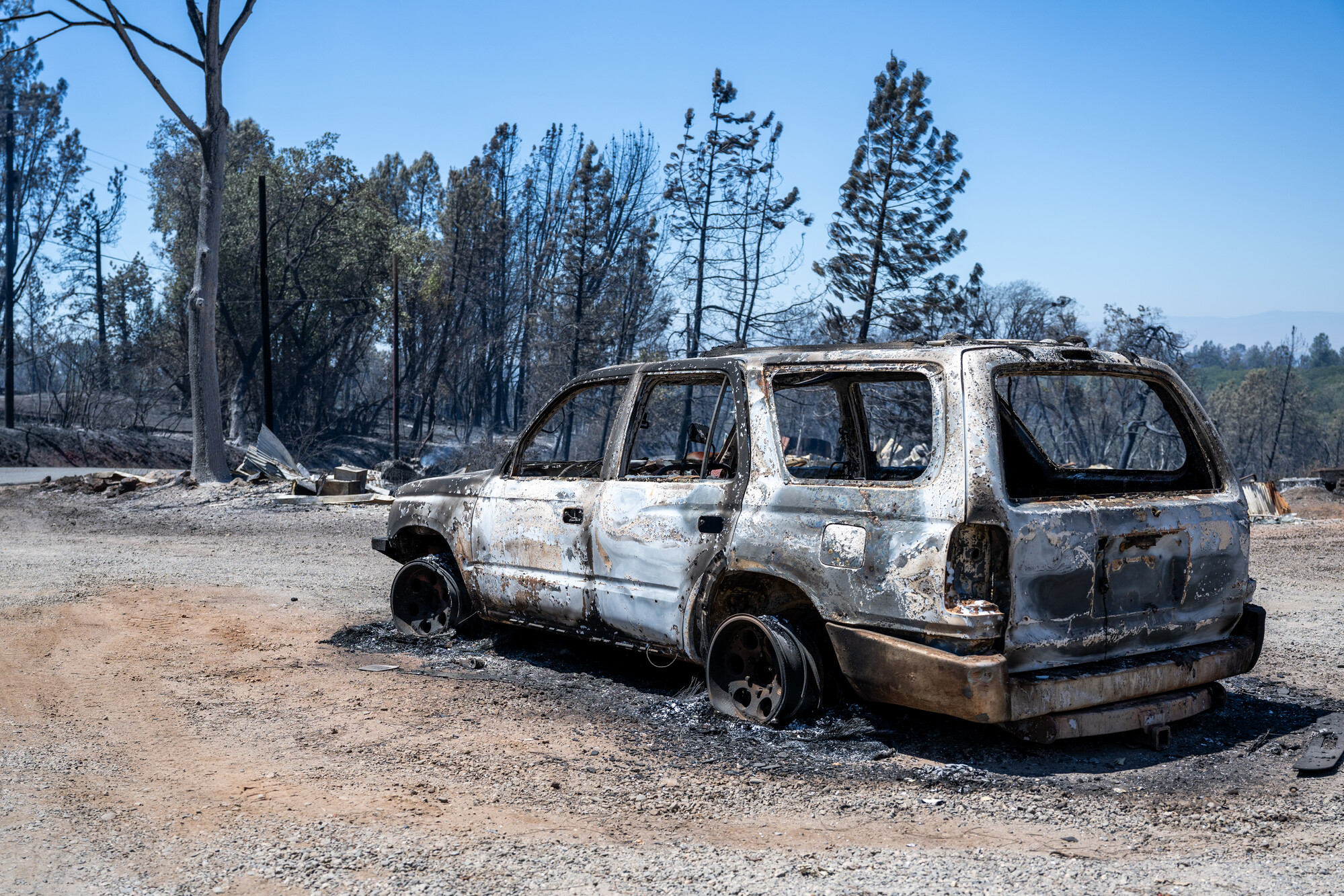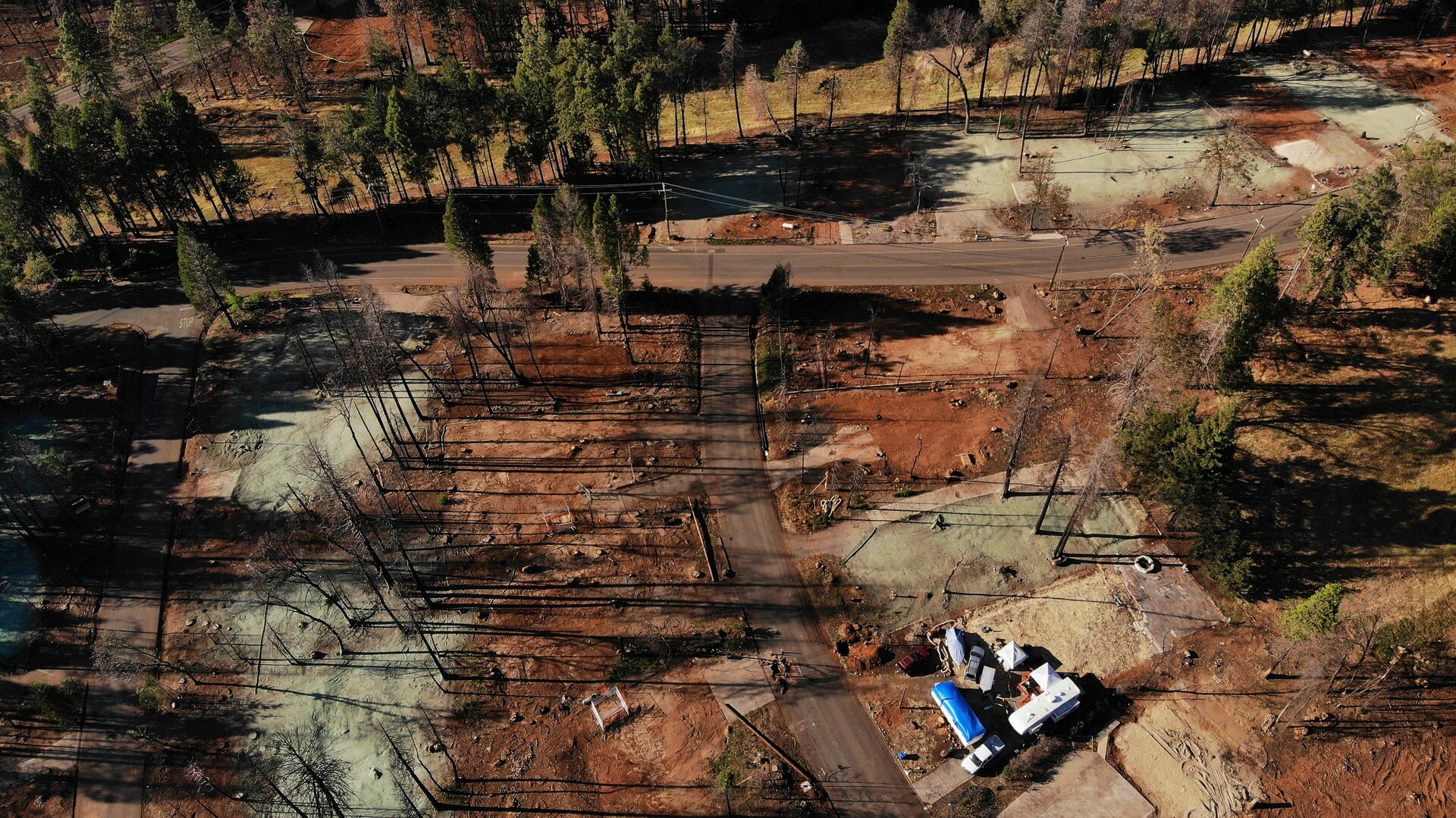California’s twin crises of rampant wildfire and hard-to-get, unaffordable home insurance have collided in rural Butte County. Here, the fire-prone landscape has seen several record-breaking fires, including the 2020 North Complex, the million-acre 2021 Dixie Fire and the 2018 Camp Fire that took 85 lives and destroyed the town of Paradise. For those who live on the remaining unburned forested ridges of Butte County, full insurance can easily run over $10,000 a year.
In the last season of KQED’s podcast Sold Out: Rethinking Housing in America, we examined the causes of California’s insurance crisis and looked forward to what it might mean for homeowners. Now, a year later, as insurance has become more expensive and less available, we follow what happens when a fire moves through a community where many people and their homes aren’t covered.
In July, the Park Fire touched off in Bidwell Park in Chico after a man rolled a burning car into a forested gully. The flames quickly raced across the landscape, moving uphill toward the unincorporated communities of Cohasset and Forest Ranch. Cohasset was especially hard hit.
Rachel Traficante came to this community 25 years ago and made a life under the trees. She and her husband Mark spent the last few decades perfecting a three-story barn that housed horses on the ground floor and beautiful living apartments on the second and third floors.

“It was really sweet because, after 20 years, this barn that was always evolving was finally done,” Traficante said. “Then we just lost all of it.”
The Park Fire tore through her property, and the barn is now flattened, charred rubble. She didn’t have insurance for it, so there’s no ready payout available to help rebuild. She’s finding you need a lot of money right after a fire and is relying on a GoFundMe started by her dad.

